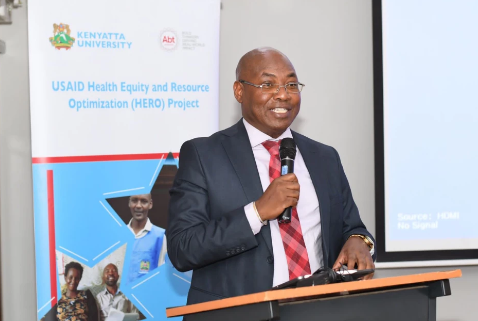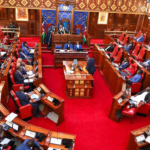The Ministry of Health (MoH) has refuted allegations regarding the presence of substandard HIV testing kits in the Kenyan market.
Principal Secretary for Medical Services, Harry Kimtai, released a statement on Monday to address these claims, asserting that they are unfounded and do not reflect the progress made in the country’s HIV response efforts.
Kimtai emphasized that the MoH is committed to ensuring the quality of HIV testing kits through routine quality assurance proficiency tests.
These measures are vital for monitoring and upholding the standard of HIV testing in Kenya, thereby safeguarding the health and well-being of individuals undergoing testing.
By dispelling these allegations and reaffirming their commitment to quality assurance protocols, the MoH aims to reassure the public and maintain confidence in HIV testing services across the country.
“The Ministry of Health assures Kenyans of its unwavering commitment to ensuring access to the highest-quality health services and urges all citizens to continue seeking HIV testing services across the country,” read the statement in part.
The PS added that the Ministry aligns with the most recent advisory from the World Health Organization (WHO) which will see Kenya move from a two-test algorithm to a three-test algorithm.
This protocol means using three different test kits in a defined sequential manner for accurate HIV diagnosis.
“The three-test algorithm marks a pivotal advancement in diagnostic accuracy, which is critical in Kenya, fight against HIV and AIDS, underscoring the MOH’s dedication to the health and well-being of all citizens,” said Kimtai.
The dispute between the Chinese company, Guangzhou Wondfo Biotech Co Ltd, and the Kenyan government over the classification of HIV testing kits has raised concerns about the quality and accuracy of testing materials in the country.
Guangzhou Wondfo Biotech Co Ltd alleges that its HIV testing kits were wrongfully reclassified, resulting in the loss of a bid to supply new testing materials for Kenya’s adoption.
The company contends that the kits supplied by the winning bidder are substandard and could lead to inaccuracies in HIV testing due to their inefficiency.
However, Director General of Health Dr. Patrick Amoth argues that Guangzhou Wondfo Biotech Co Ltd was aware that its kits had been classified as Assay 2 (A2), indicating their specificity and sensitivity levels.
The specificity and sensitivity of HIV testing kits are crucial for accurate diagnosis, with kits categorized as A1, A2, or A3 based on these factors.
Despite the ongoing legal dispute, the Ministry of Health emphasizes the importance of maintaining high standards in HIV testing to effectively combat the epidemic in Kenya.
Kenya faces significant challenges in addressing its HIV epidemic, with an estimated 1.4 million people living with HIV in the country. However, efforts are underway to provide treatment to PLHIV, with over 1.3 million individuals receiving treatment at various healthcare facilities across the country as of December 2023.
“Annually, over 8 million HIV tests are conducted in a standardized manner across different populations in over 8,851 public, private, and faith-based HIV testing sites across the country,” the Ministry notes.



